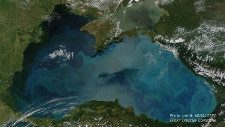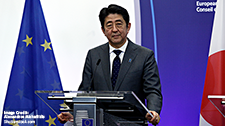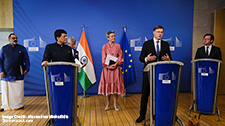Blindsided – The United States and North African Unrest
Roger Svensson
For the last fifty years, U.S. foreign policy vis-à-vis Arab and Middle Eastern nations has been dominated by two big issues: the Israeli state and secure access to oil. Even if the United States is today much less dependant on oil from autocratic regimes in the region, the events of September 9, 2001 made the Arab and Islamic nations the key issue of U.S. foreign policy. In no particular order it meant Iran, Iraq and of course Israel/Palestine. Developments in Tunisia, Egypt and Libya during recent weeks have turned the table and forced the U.S. (and the European Union) into ad hoc crisis management.
Related Publications
-
China as a Black Sea Actor: An Alternate Route
China’s international role has expanded rapidly in the last decades, and the Greater Central Asian region, Europe, and the Middle East, to which the Black Sea region (BSR) connects, are […]
-
Taiwan-PRC Crisis: What Cross-Strait Conflict Could Cost Europe
The escalating tensions between Taiwan and China pose significant economic and strategic challenges to the European Union, such as the inaccessibility of Taiwanese inputs, market, and capital. This issue brief […]
-
Strong Europe-Japan Relations are a Legacy of Shinzo Abe
Abe was a firm proponent of strengthening a free, open and rules-based Indo-Pacific. Not only was he steering Japan away from total dependence on the U.S. for its security, but […]
-
Safeguarding intellectual property in the wake of digital authoritarianism: An Interview with DR. REBECCA SPYKE KEISER
Dr. Rebecca Spyke Keiser is the Chief of Research Security Strategy and Policy (CRSSP) at the National Science Foundation (NSF). The U.S. National Science Foundation is an independent federal agency […]
-
Trade, Connectivity and Supply Chains in EU-India Relations
In the decade and a half since 2007 when the EU and India first started their FTA negotiations, the world economic order has undergone a sea change. During that period, […]




